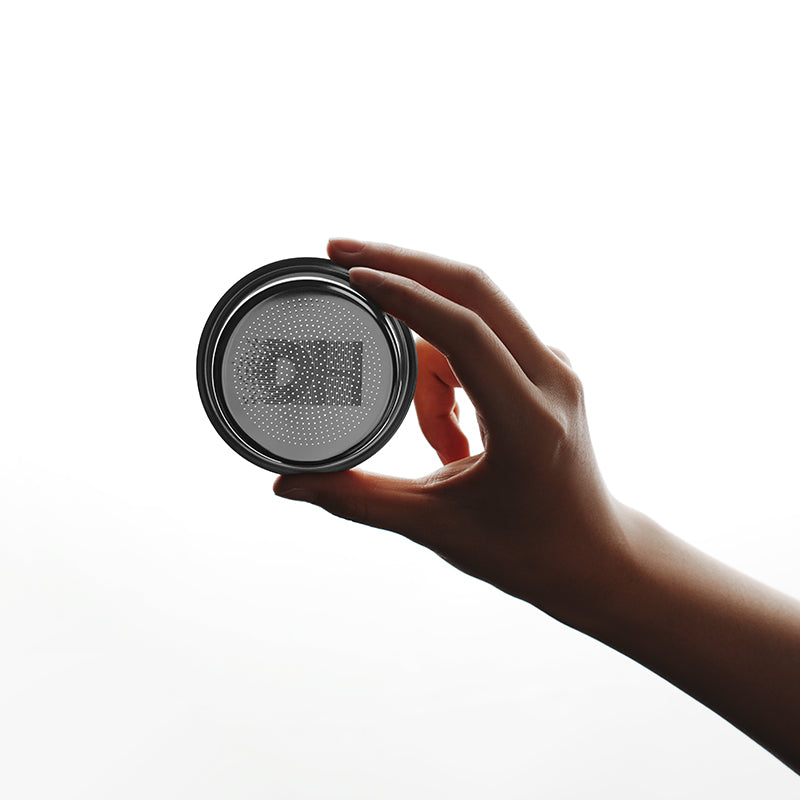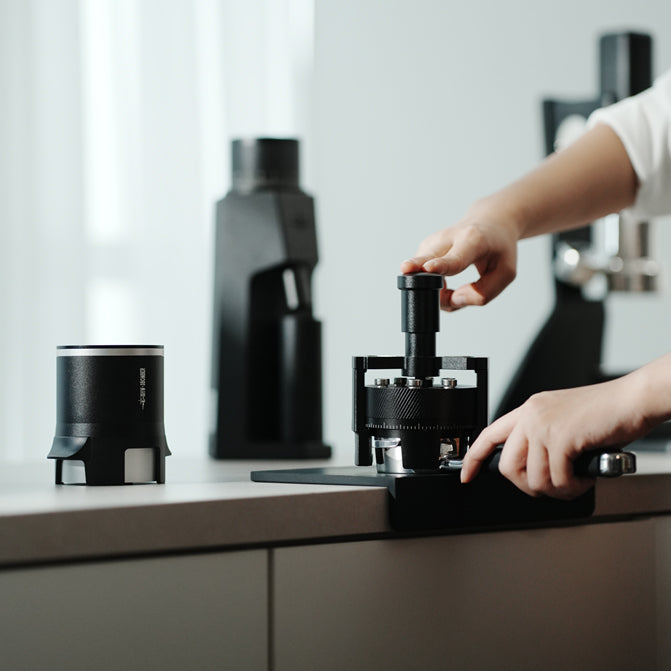MHW-3BOMBER - JAN 6 2025
What is the best water for brewing coffee? What are the standards for coffee-specific water?

When it comes to brewing a great cup of coffee, the quality of the water you use can make a significant difference. Water accounts for over 98% of your cup, so selecting the right water is crucial to achieving a balanced and flavorful brew. While it may seem like any water will do, the truth is that different types of water can have a profound impact on the taste, aroma, and overall quality of your coffee. In this blog, we'll dive into the science of water in coffee brewing and explore how minerals, pH levels, and water hardness can influence your cup.
The Science Behind Water and Coffee Flavor
Water is not just a neutral solvent; it interacts with the coffee grounds, extracting essential compounds that contribute to the flavor. The presence of minerals in the water can significantly affect how these compounds are extracted. According to Christopher Hendon, a PhD student at the University of Bath's Centre for Chemical Technology, the mineral content in water plays a crucial role in shaping the flavor profile of coffee. Hendon's research, conducted in collaboration with Maxwell Colonna-Dashwood, revealed that minerals like magnesium, calcium, and sodium have varying effects on the extraction process, which in turn influences the taste of the coffee.
The research found that the final taste of coffee depends not only on the quality of the coffee beans and the roasting process but also on the extent and proportion to which specific flavor compounds are extracted during brewing. This balance is the key to making a high-quality cup of coffee. For example:
Lactic acid: Exhibits sourness
Malic acid: Enhances sourness
Citric acid: Brings a sweet flavor
Quinic acid and chlorogenic acid: Bring a stimulating and unpleasant taste
Caffeine: Presents an aromatic and mildly alkaline taste
Hard Water vs. Soft Water: What's the Difference?
The debate between hard and soft water has long been a topic of discussion in the coffee world. Hard water, which contains higher concentrations of calcium and magnesium, is often considered detrimental to coffee flavor. However, Hendon's research suggests that not all hardness is created equal. Water with high levels of bicarbonate ions, often found in some hard water sources, can negatively affect the extraction process, leading to over-extraction and a bitter taste. On the other hand, water with higher magnesium content can help improve the extraction of desirable coffee compounds, resulting in a smoother, more balanced cup.
Soft water, which contains fewer minerals, is less likely to cause scaling in your equipment, but it may not extract the full range of flavors from the coffee. The lack of minerals can result in a flat or dull cup with less complexity. Thus, while soft water is generally easier on your equipment, it might not be the best choice for achieving the perfect brew.
Ideal Water Composition for Brewing Coffee
The Specialty Coffee Association (SCA) recommends a total dissolved solids (TDS) range of 75-250 ppm for brewing coffee, with the ideal TDS often falling below 100 ppm for optimal extraction. TDS measures the concentration of dissolved substances in water, including minerals, salts, and metals. While TDS is an important indicator of water quality, it doesn't tell you exactly what types of minerals are present.
For the best coffee extraction, water should contain a balance of calcium and magnesium. Calcium helps to dissolve the acidic compounds in coffee, enhancing the tangy or fruity notes, while magnesium enhances the sweetness and aroma. Too much calcium, however, can lead to scaling, while too much magnesium can make the coffee overly bitter. The perfect balance will depend on your personal taste preferences and the specific coffee beans you are using.
The Role of pH in Coffee Extraction
Another important factor in water quality is its pH level. The pH of water can impact the acidity of the coffee, which in turn affects the overall flavor. Water with a neutral pH, around 7, is ideal for brewing coffee, as it allows for the optimal extraction of compounds without introducing excessive acidity or bitterness. Water that is too acidic (with a pH below 6) can result in overly bright or sharp flavors, while water that is too alkaline (with a pH above 8) can make the coffee taste flat or dull.
What Water Should You Use for Coffee Brewing?
So, what type of water should you use for brewing your coffee? Let's break it down:
Tap Water: While convenient, tap water is often unsuitable for coffee brewing due to its variable mineral content and potential for chlorine or other contaminants. Even if your tap water meets the TDS standards, it may still contain traces of chlorine, which can impart an unpleasant taste to your coffee. If you're using tap water, it's important to filter it properly and test the TDS levels to ensure it's suitable for brewing.
Purified Water: Purified or distilled water is free from minerals, but this isn't ideal for brewing coffee. Water without minerals may result in a flat, bland cup, as it lacks the necessary ions for optimal extraction. Avoid using purified water unless you add minerals back in to improve flavor.
Mineral Water: Some mineral waters can be a great option for brewing coffee, but not all mineral waters are created equal. Look for water with a balanced mineral profile, including adequate amounts of calcium and magnesium. Be sure to check the label for the TDS value and mineral content to find a suitable option. Avoid high-TDS waters like Evian, which has a TDS of 489 ppm, as it may be too mineral-heavy for coffee brewing.
Filtered Water: If you prefer to use tap water, investing in a high-quality water filter is essential. Filters can remove chlorine and other contaminants while retaining essential minerals. Test the filtered water's TDS levels and pH to ensure they fall within the recommended ranges for brewing coffee.
Conclusion
Water is one of the most important yet often overlooked factors in brewing great coffee. The mineral content, pH level, and TDS of your water can all affect the flavor profile of your brew. For the best results, aim for water that contains a balanced amount of calcium and magnesium, with a TDS level between 75 and 100 ppm. Avoid using water that is too high in bicarbonates or too low in minerals, as this can result in unpleasant flavors. Whether you use tap water, filtered water, or mineral water, testing the water quality and adjusting it to suit your coffee beans and brewing method is the key to unlocking the full potential of your coffee. Happy brewing!





